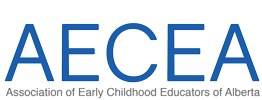A compassionate and trauma-informed approach to leadership is essential for creating healthy workplace cultures. Trauma is prevalent in our world and has an impact on many of the people we interact with, including staff and colleagues. Based on our book, A Little Book About Trauma-Informed Workplaces, this workshop explores how to lead with a trauma-informed approach and provides five key principles that trauma-informed workplaces embody. By embracing these principles, organizations can contribute to the positive transformation of individuals and relationships affected by trauma, while at the same time creating the conditions that lead to high levels of employee engagement and organizational success. Every organization, from any sector, can benefit from becoming trauma-informed.
Learning Objectives
Upon completion, participants should be able to:
- Discuss the prevalence and impact of trauma on individuals and organizations
- List five key trauma-informed principles
- Describe practical strategies for implementing each of the five trauma-informed principles
- Assess their own organization for areas of trauma-informed strengths and weakness
Some of the Topics Included
- Trauma’s Ripple Effect
- The Impact of Trauma in the Workplace
- Characteristics of a Trauma-Informed Leader
- 5 Principles of Trauma-Informed Workplaces - Promote Awareness, Shift Attitudes, Provide Choice, Foster Safety, Highlight Strengths
- Steps for Implementing Principles
Target Audience
This is an intermediate-advanced level workshop for leaders, managers, supervisors, and anyone providing leadership within an organization.
Location:
Online
Date & Time:
June 5, 2024 9:00 a.m. - 12:00 p.m. MST
For more information and to register, go here.
AECEA Professional and Student members get 15% off public workshops through the ACHIEVE Centre for Leadership and Workplace Performance, log in to your account for the discount code!
